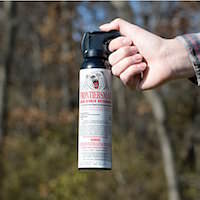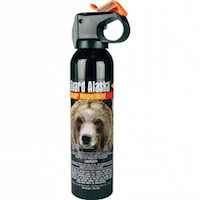Bear Precautions and Safety
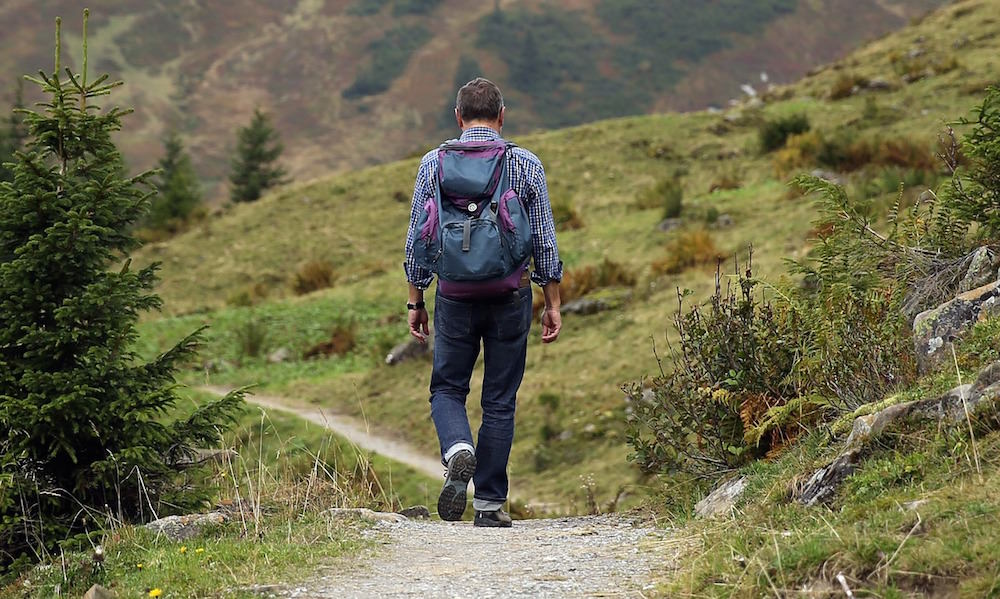
By Simon Lockwood, Expert Reviewer for Repellent Guide
published: Aug 01, 2017 | updated: Aug 01, 2017
Imagine you are camping in the backwoods of Canada, and you have settled in for the night. Suddenly, there comes a ruckus from outside your tent. Pots and pans clatter to the ground. A bear has just tried to get to the food stored in the boxes under the pile of pots and pans being used to alert the camp to just this situation. Immediately, your training kicks in, and along with the other members of your group you begin screaming and yelling in an effort to scare the bear away. Out of the darkness comes a single, terrifying, growl. Then silence. The minutes tick past. And everyone is thinking the same thing – someone needs to go out there and set the pots and pans back up on top of the food in case the bear comes back.
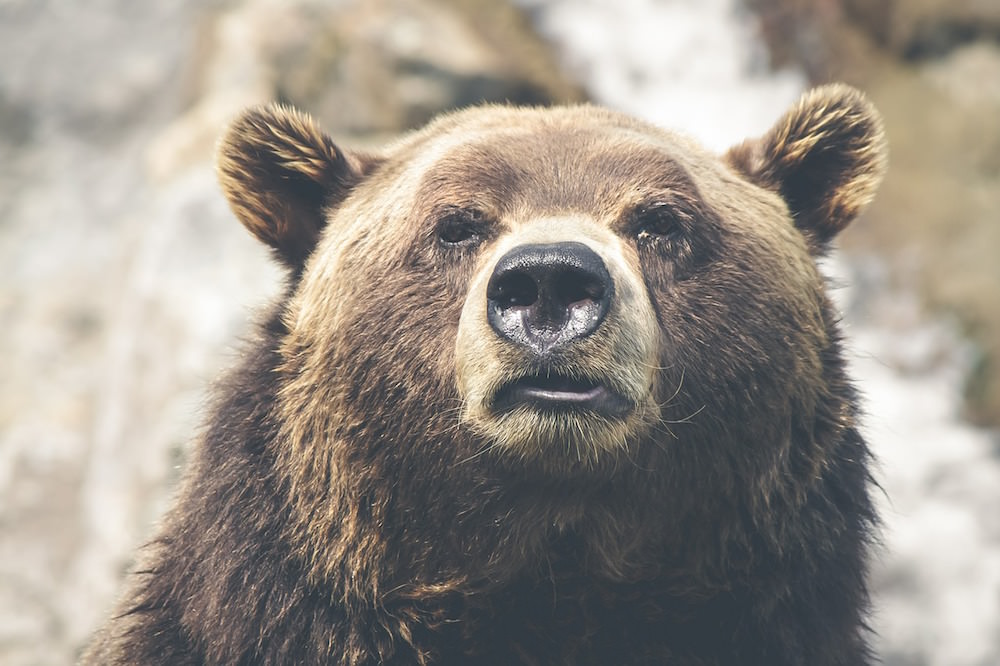
Bears are probably some of the least understood animals in the world. They have often been portrayed as vicious carnivores, out for their next meal of meat. In reality, bears are herbivores, happy to eat berries just as much as scavenge the remains of some other carnivore’s kill. They are fiercely territorial, however, and invading a bear’s territory is a recipe for disaster. But by understanding more about bears, how to avoid them, and what to do when one is encountered, it is possible these animals will leave you in peace and neither you nor they will be injured in any serious manner.
Bears tend to avoid humans, although food and other scented items are a good way to attract them. In your campsite or cabin, make sure food is properly stored and secured in such a way that bears cannot get to it. This means that in the wilderness, a bear bag is used to secure food in a tree – but away from the trunk. If a car is available, place food in the car and ensure the campsite is cleaned up of anything that has a scent to it. Yes, this means toothpaste and deodorant. Even if a bear is not interested in eating what it smells, the smell alone may be enough to attract it to your campsite, and that could lead to an unwanted bear encounter. An easy way to deter bears from seeking out human food is to not feed them to begin with. Once they associate people with free meals, even if that meal is from a garbage can, they will be less shy about approaching a campsite or cabin, which could lead them to hurt someone in their search for their next free meal.
As bears tend to avoid humans, traveling in groups when out on the trail is the best way to avoid any unwanted visits from a bear. Making plenty of noise (talking, shuffling, etc.) will help alert any bears in the area to the human presence, and they are likely to steer clear of the trail that you and your companions are using. Make sure that small children are kept close to the group – they should not be allowed to run ahead or fall behind because they would be an easy target for a bear caught unawares to the human presence. As long as you are out having a good time on your hike, enjoying the company of friends – never alone – there should be no cause for concern from bears because they will try to avoid the people on the paths. Do not go off of the set paths in search of bears, because coming across one unexpectedly could be a recipe for disaster. Stick to the established trails and just enjoy the scenery, forgetting that you are in bear country, and you will have nothing to worry about.
Should you encounter a bear, there are certain things you should, and should not, do. First off, do not panic. Yes, it is a scary situation, but if you panic you will not think clearly and you are likely to make a mistake. Make yourself and your group as large as possible. If the bear thinks it is up against something bigger than itself, it is likely to back down. Make as much noise as possible, waving things around. This will scare the bear, and make him think twice about pursuing an attack. Bears do not want to attack humans or hurt anything if they do not have to. Remember, they are solitary but territorial, and if you have come into their territory they will want to know why and may fight for it. But if you are bigger and scarier than they are, they will temporarily concede the territory, backing down and retreating to a safe distance while you pass through and carry on.
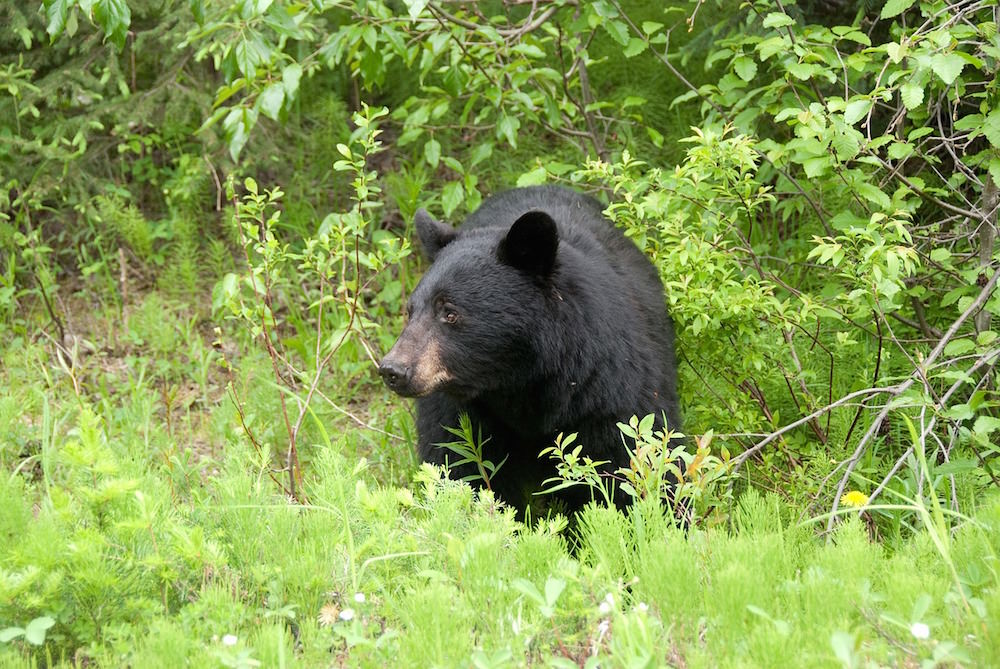
If a bear actually does attack you, do not fight back. Chances are the attack is more just to scare you away, and the bear does not intend any mortal harm to you. As you should be in a group, the rest of your group should continue to make noise to scare the bear away and then get you the help you need.
If you do anything to further enrage the bear, like fight back, there is a chance that he will become more aggressive and try to do you more harm. Special pepper sprays may be used as a last resort and should be directed at the bears face from at least 10-20ft away. See our reviews of the best bear repellents.
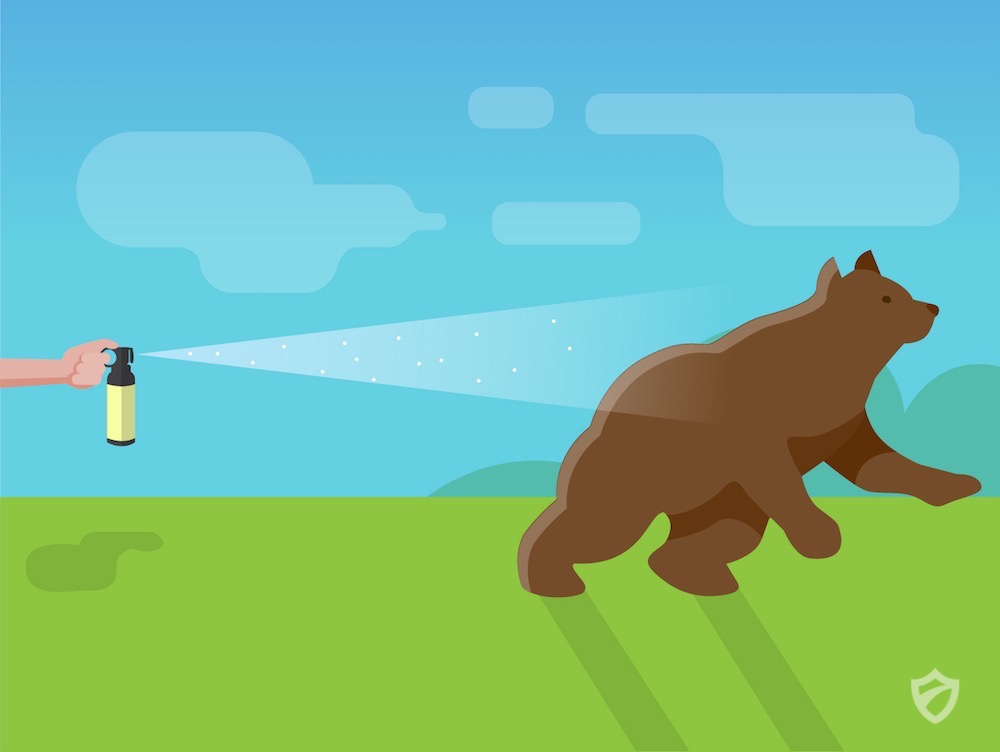
Bears generally just want to be left alone. It is rare for humans to encounter bears, and when it does happen it is usually a bear running away from the human. As long as your campsite is kept free of scents (especially food, but anything with an unnatural smell), bears should not enter into your sleeping area. They may lumber past as you sleep, but you will never know they were there. While out hiking, make sure you are in a group of people that is making noise to alert bears to the presence of humans. They will try to stay away, and you should not go looking for them. If a bear is encountered, stand firm and make yourself and your group as big and loud as possible in an effort to show the bear that you are bigger than he is – he should back down and retreat. If the bear does attack, do not provoke the bear, which could cause him to turn a simple scare tactic into a full-on mortal attack.
Bears are marvelous creatures that should be admired – if you see one – from a distance. Leave them in peace and follow these simple guidelines, and the bears will leave you in peace to enjoy nature and the outdoors.

